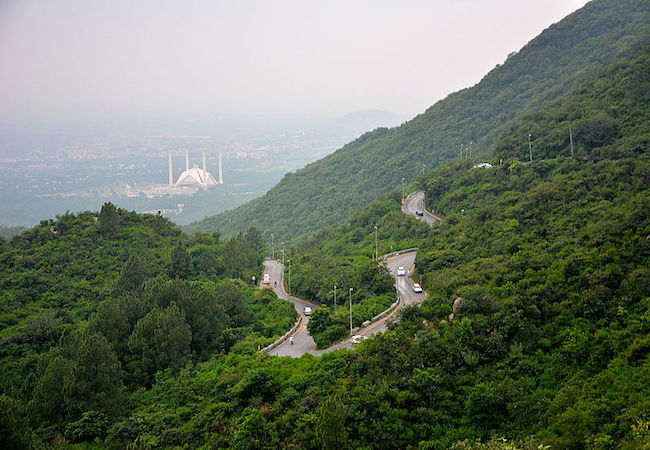
By Nisar Ahmed Khan
Pakistan’s recent decision of sending a contingent of slightly above 1000 troops to Saudi Arabia apparently in violation of its own parliamentary resolution of 2015 on Yemen, reflects the country’s tight rope walk between two main regional rivals i.e. Saudi Arabia and Iran and highlights the need to make arrangements for keeping the policy of neutrality intact when it comes to the disputes involving Muslim states in the Middle East.
From Pakistan’s perspective, the significance of keeping neutrality can be gauged from the fact that Article 40 of the constitution of Pakistan obliges it to strengthen fraternal relations among Muslim countries. Thus, dividing the Muslim world or taking side in intra-Muslim disputes is tantamount to breach of Pakistan’s constitution.
Apart from this, Pakistan’s own sensitivity about the issue of sectarianism and the fragile sectarian harmony dictates that the country should tread the conflict ridden geopolitical landscape of Middle East with utmost caution lest it polarize Pakistan internally on sectarian lines.
Pakistan has long borne the brunt of sectarian agendas pursued by Saudi Arabia and neighboring Iran. The country’s internal vulnerability stemming from sectarianism has been exploited by foreign powers and by non-state actors alike. According to the South Asia Terrorism Portal, Pakistan has witnessed more than 21,900 deaths in sectarian violence since 2003. Thus, any real or perceived tilt of Pakistan towards either of the two regional rivals runs the risk of alienating either of the two. Such an eventuality is not without cost and Pakistan’s decision to avoid being drawn into the Yemen quagmire in 2015 was reflective of this realization.
Here arises a question that what are the potential reasons behind Pakistan’s latest decision to finally send troops to Saudi Arabia?
Firstly, the recent decision to send troops to Saudi Arabia comes at a time when Saudi Arabia is miserably embroiled in a costly Yemen conflict without any noticeable military and political benefits. The kingdom’s air campaign against Houthis has failed to achieve victory; on the contrary ground local Yemeni allies of Saudi Arabia and the UAE have turned the guns on each other, thus further complicating the conflict. The Houthis have, meanwhile, intensified missile attacks on Saudi targets, though most have been intercepted by the Saudi air defence systems before they could hit the targets.
Pakistan’s insistence regarding the training and advisory role of its troops being sent to the Kingdom appears more logical in this context. Drawing on its own experience of dealing with irregular war in mountainous terrain, Pakistan military is well poised to provide training and advice on Yemen conflict.
Secondly, the Arab world’s open courtship of rival India in recent times and growing pressure on Pakistan from the US over Afghanistan may have also necessitated some symbolic gestures favorable to Saudi Arabia.
However, apart from Saudi Arabia’s regional challenges, the political infighting and drastic socio-political changes within the Kingdom also would have warranted some sort of help and Pakistan’s additional troops might be employed to protect the monarchy from within.
Thus far, Pakistan seems to have steered rather successfully between Iran and Saudi Arabia apparently due to smart diplomacy. Pakistan’s insistence that the decision to send troops is in line with preexistent security agreement of 1982 and thus troops will only be deployed within Saudi territory is no doubt reassuring but the timing and lack of transparency in decision making process has raised some eye brows.
It is telling that soon after the announcementof the decision the issue was hotly debated in the upper house of Pakistan’s parliament with the Chairman senate Raza Rabbani expressing dissatisfaction over the details provided by Defence Minister Khurram Dastagir Khan.
In a nutshell, the mounting ideologically and geopolitically driven conflicts in the Middle East involving Muslim states necessitate Pakistan to reassess the utility of preexisting bilateral security and defence pacts with those countries with the aim of avoiding being sucked in to their bilateral conflicts. For, Pakistan cannot afford to fight others wars at a time when its own house needs to be set in order and its own borders need to be protected against the incursion and infiltration of terrorists. This is however not to imply that Pakistan remain indifferent about the developments in its Middle Eastern sphere of influence rather Pakistan should proactively play the role of a mediator and peace maker between the warring parties because such a strategy would surely go a long way in benefitting Pakistan. Contrarily, decisions driven by short term political and economic considerations will only cost a huge price for the country tomorrow.
Nisar Ahmed Khan is a Research Affiliate at Strategic Vision Institute in Islamabad, Pakistan.




